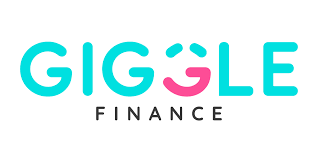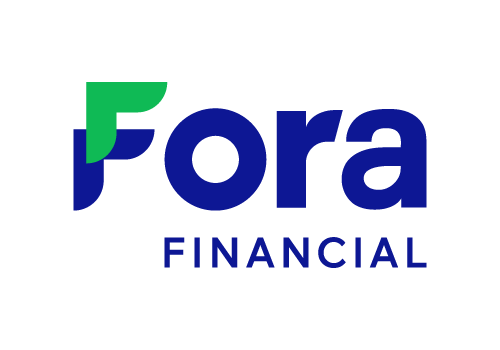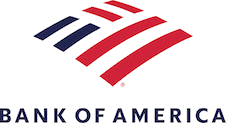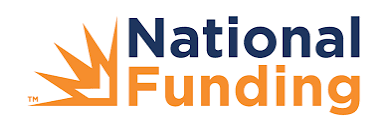Concerned about tariffs?
Many small-business owners are under increased economic stress and uncertainty following the latest tariff announcements. NerdWallet is here to help you find answers for whatever you’re looking for. Here are some resources to help you get started:
Business loans intended exclusively for women are rare, largely because the Federal Equal Credit Opportunity Act prohibits lenders from discriminating based on gender or other protected characteristics.
Many lenders, however, offer small-business loans with more flexible qualification requirements, helping extend funding opportunities to a wider pool of applicants — including women.
Below, compare some of the best small-business loans for women and explore additional funding options and resources.
We’ll start with a brief questionnaire to better understand the unique needs of your business.
Once we uncover your personalized matches, our team will consult you on the process moving forward.
Types of small-business loans for women
Although loan options set aside specifically for women are limited, the SBA and some lenders invest in programs to help improve access to funding. As a result, women-owned companies may be able to tap into multiple types of business loans, including:
Business bank loans
Best for: Established businesses with good credit and revenue.
-
Usually offer the lowest interest rates and most competitive terms.
-
Require good credit, two or more years in business and strong revenue to qualify.
-
Slow to fund, but worth it if you can meet the requirements.
-
May have dedicated lending programs to help traditionally underserved borrowers (including women).
➡️ Fast fact: Since launching its Lift Local Business Program in 2020, Huntington Bank has funded over 3,000 women-, minority- and veteran-owned businesses. The program offers more flexible requirements, fee discounts and additional business resources.
SBA loans
Best for: Businesses that can’t qualify for a bank loan.
-
Issued by banks and credit unions; partially guaranteed by the U.S. Small Business Administration.
-
Offer low interest rates and long repayment terms.
-
Loans can be used for a variety of purposes.
➡️ Fast fact: 19.4% of SBA 7(a) loans in fiscal year 2025 were issued to businesses with more than 50% female ownership.
Online loans
Best for: Newer businesses and borrowers with bad credit.
-
Several loan types available, including term loans, lines of credit, equipment financing and invoice factoring.
-
Offers fast funding and flexible qualification requirements.
-
Higher borrowing costs than other options.
➡️ Fast fact: After large banks (37%), most women-owned businesses apply for financing at online lenders (27%)— according to 2024 data from the Federal Reserve.
CDFI loans
Best for: Underserved and low-income entrepreneurs.
-
Funded by community development financial institutions (CDFIs).
-
Focus on lending to low-income and underserved communities, including women.
-
Requirements are more flexible than traditional lenders.
-
Offers competitive rates and terms, but slower funding than online lenders.
➡️ Fast fact: According to the CDFI Fund’s 30th Anniversary Report, CDFIs reported financing over 155,000 women-owned businesses in the last three years.
Microloans
Best for: Small funding needs; borrowers who can’t qualify for traditional financing.
-
Typically offered by nonprofits that support women or minority entrepreneurs.
-
SBA microloans are part of this category — they’re funded by the SBA and issued through nonprofit intermediaries.
-
Flexible qualification requirements; can work with new businesses and borrowers with bad or limited credit.
-
Lenders often provide free or low-cost coaching and business training.
➡️ Fast fact: 46.5% of SBA microloans issued in fiscal year 2025 went to businesses that are completely female-owned.
Best small-business loans for women
How to get a business loan for women
Applying for a business loan for women is similar to applying for any other type of financing. Follow these steps:
1. Identify your funding needs
Determine how much funding you need and why you need it. Consider your cash flow and bottom line — and make sure you can support monthly payments — which will include interest.
2. Check your qualifications
Although qualification requirements vary, it can be helpful to know where you stand with lenders before applying. Consider these common loan criteria:
-
Credit score. Lenders will ask for your personal credit score, which you can get from your credit report via the main credit bureaus. (You can also get it from NerdWallet.)
-
Time in business. Most online lenders require a minimum of three to six months in business, while most banks prefer at least two years.
-
Annual revenue. A few lenders only require $50,000 (or less) in annual revenue, while most look for $100,000 to $250,000.
3. Choose the right lender
You should always compare multiple options to decide which small-business lender is best for your needs. Consider factors such as qualifications, interest rates, repayment terms and application process. You can read online reviews to get a better sense of what it’s like to work with a particular lender.
4. Prepare your documentation and apply
Streamline your application process by gathering all of the required documentation ahead of time. Specifics will vary based on your lender, but generally you’ll need:
-
A valid form of identification (such as a driver’s license).
-
Bank statements and tax returns (both business and personal).
-
Business financial documents like a balance sheet and profit and loss statement.
-
Business legal documents like licenses, permits and contracts.
-
Proof of collateral, if relevant.
Keep in mind: Many banks require you to apply in person or over the phone, while online lenders will have you complete the application entirely online.
5. Review your loan agreement and receive funds
In order to receive your funds, you’ll need to sign a business loan agreement. You should carefully review the agreement and make sure you understand all of the terms and conditions. Address any questions or concerns you may have with the lender before signing.
Other resources for female entrepreneurs
Government and nonprofit organizations offer free assistance to women entrepreneurs. These programs may help women access business loans, as well as provide guidance on topics like starting a business, financial management and marketing.
Office of Women’s Business Ownership
The SBA’s Office of Women’s Business Ownership offers a number of advocacy, outreach and education programs to assist women entrepreneurs. This includes business training and counseling (in multiple languages and dialects) as well as access to capital and federal procurement (contracting) opportunities.
Created by the Freeport-McMoran Foundation, DreamBuilder is an online education program for female business owners. The program offers two course options — one course is designed to help entrepreneurs start their business — while the other focuses on how to finance your operations. It’s free to enroll in the DreamBuilder courses, and they’re available in both English and Spanish.
Women’s Business Centers
The Women’s Business Centers are a network of more than 160 educational centers located in all 50 states, the District of Columbia and Puerto Rico that help women start and grow their businesses. These SBA-funded centers typically offer seminars and workshops on a range of topics, including how to start a business and raise capital.
Women-Owned Small Businesses Federal Contracting Program
The SBA-run Women-Owned Small Businesses Federal Contracting Program is for women-owned businesses that are interested in government contracts. It tries to level the playing field for women business owners by limiting the competition they face for certain contracts. There are also some contracts that are reserved for economically disadvantaged women-owned small businesses.
Access to Capital Directory
Seneca, a global platform with the mission of advancing women and girls, and Bank of America created the Access to Capital Directory to provide information about organizations that provide funding to women-owned businesses. The directory includes funding types such as CDFIs, nonbank institutions, venture capital and angel investors, among others. However, it doesn’t include listings for bank loans.
Women’s Business Enterprise National Council
The nonprofit organization Women’s Business Enterprise National Council (WBENC) offers programs, events and networking opportunities for women-owned businesses. Its WBENC Certification program is a national certification program for women-owned businesses that can potentially open the door to corporate and government contracts for many women.
National Association of Women Business Owners
The National Association of Women Business Owners, based in Washington, D.C., has 5,000 members and nearly 60 chapters across the country. It offers training and information on topics such as access to capital, government contracting and business certification.
Alternative funding options for women-owned businesses
If you aren’t able to qualify for a business loan, here are some additional options that may allow you to secure funding for your business:
-
Grants for women-owned businesses. Small-business grants for women are available through private companies and nonprofit organizations. Although small-business grants can be highly competitive, if you do receive funding, that money may help you start or expand your business.
-
Equity financing for women-owned businesses. Equity financing can include angel investors, venture capitalists and crowdfunding. Although women-owned businesses may also face funding disparities in equity financing, there are programs and companies that target female entrepreneurs, including startup businesses. IFundWomen, for example, offers a crowdfunding platform and business resources for entrepreneurs — and 37 Angels is an angel investment network that connects female founders with investors and educational tools.
-
Business credit cards. Business credit cards are also a good option for women-owned small businesses that are just starting out or need working capital. Qualification can be easier than for a business loan because approval relies more heavily on your personal credit history.
Frequently asked questions
Are there specific loans for women-owned businesses?
How hard is it for a woman to get a business loan?
Can a woman get a small-business loan with bad credit?
Should you get certified as a women-owned business?







